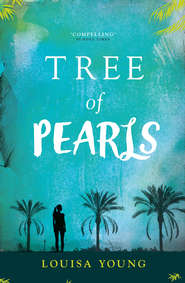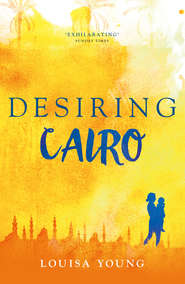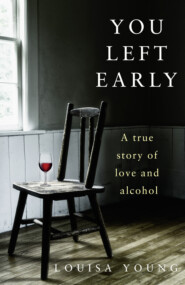По всем вопросам обращайтесь на: info@litportal.ru
(©) 2003-2024.
✖
The Heroes’ Welcome
Автор
Год написания книги
2018
Настройки чтения
Размер шрифта
Высота строк
Поля
Title Page (#u3286e141-391e-5d54-a5e5-39d52ab045ea)
Copyright (#u6f05a933-e736-5348-892f-577e13e783f9)
Praise for The Heroes’ Welcome (#u24ca9819-3765-531c-8481-a551a8160ee4)
Dedication (#u11e10c1a-8dcf-596c-98f5-9e515901a418)
Epigraph (#u7bd06175-4c64-51b2-955a-92d9af4e4cda)
Part One: 1919 (#ud61b3bc6-06c1-5fb1-9bb1-6d6553909be7)
Chapter One (#u4b667220-82a2-5bb5-9d8b-7b524444d76a)
Chapter Two (#ufd007067-2d78-514f-a597-88b0b72e11b3)
Chapter Three (#uffe9bc7c-8903-5dd0-b6b8-5887384dcc9c)
Chapter Four (#u890f086b-bc81-572f-8351-c4cd920239c6)
Chapter Five (#u6ac2f61f-6ef9-5f49-a4cc-78a87349b086)
Chapter Six (#litres_trial_promo)
Chapter Seven (#litres_trial_promo)
Chapter Eight (#litres_trial_promo)
Chapter Nine (#litres_trial_promo)
Chapter Ten (#litres_trial_promo)
Part Two: 1919 (#litres_trial_promo)
Chapter Eleven (#litres_trial_promo)
Chapter Twelve (#litres_trial_promo)
Chapter Thirteen (#litres_trial_promo)
Chapter Fourteen (#litres_trial_promo)
Chapter Fifteen (#litres_trial_promo)
Chapter Sixteen (#litres_trial_promo)
Chapter Seventeen (#litres_trial_promo)
Chapter Eighteen (#litres_trial_promo)
Chapter Nineteen (#litres_trial_promo)
Chapter Twenty (#litres_trial_promo)
Chapter Twenty-one (#litres_trial_promo)
Part Three: 1927 (#litres_trial_promo)
Chapter Twenty-two (#litres_trial_promo)
Chapter Twenty-three (#litres_trial_promo)
Chapter Twenty-four (#litres_trial_promo)
Acknowledgements (#litres_trial_promo)
About the Author (#litres_trial_promo)
Also by Louisa Young (#litres_trial_promo)
About the Publisher (#litres_trial_promo)
Part One (#u4da12643-0db2-5a5f-ab42-af1f3a2b5c31)
Chapter One (#ulink_3c1446fc-31ab-5a8e-9b1a-7a3b85d645c4)
London, March 1919
Riley Purefoy did not think very much about the war. He didn’t have to. It was part of him. If others mentioned it …
… but then they didn’t: neither the other old soldiers, who had, most of them, realised very quickly that nobody wanted to hear what they might have to say, nor the civilians, who drifted away at the same rate as the soldiers fell silent.
Phrases and scraps, from time to time, slithered back at him. There was a taste in his throat sometimes, unidentified. There was an insistent image of bits of coughed-up gassed lung on the floor of an ambulance, which brought with it the necessity of standing still for a moment. There were moments still, a year and a half after he had stumbled off the battlefield, when the silence confused him as dry land confuses a sailor’s legs. There was Peter Locke’s voice, saying: ‘Then you’re in charge, old boy.’ This last stuck with him, because he knew that however unlikely it seemed, this remained largely true. He was in charge.
Despite his physical damage, Riley was well equipped: a sturdy young man, clear-eyed. So as the months went by, when he did think of war, he thought more of future war, and how to prevent it; of the future children, and how to keep them safe from it, or of the future of his fellow wounded, and how to improve it. He saw people look at him with pity and doubt. He registered the small (or large) involuntary gasps that his scarred face provoked. When a taxi driver drove off because he couldn’t understand what Riley was saying, Riley did his best to conjure sympathy for the man’s embarrassment over natural fucking anger at this continued humiliation.
He was quite aware that not many people thought he’d add up to much, poor fellow. But if he learnt anything from being shot to bits and patched up again, it was this: now is a good time to do what you want.
Riley Purefoy and Nadine Waveney married under a daftly beautiful wave of London blossom cresting over a city that had been at war for so long that it didn’t know what to do with itself. On the wall of the register office a sign read: ‘No Confetti – Defence of the Realm Act’. The flying blossom storm took no notice of that, dizzying eddies of it on the spring breeze, and mad sugar-pink drifts accumulating against the damp Chelsea kerbstones. Nadine, still so skinny she wasn’t having her monthlies, wore Riley’s vest under Julia Locke’s utterly out-of-date wedding dress from before the war, taken in. Riley was in uniform. Peter Locke, Riley’s former CO, tall, courteous and almost sober, was best man. Peter’s cousin Rose was maid of honour, in white gloves, and his son Tom, flaxen-haired symbol of innocence and possibility, was the pageboy. No one else was there. Tom’s mother, Julia, had picked early white lilac and given it to Rose to bring up from Locke Hill, but she didn’t come herself. She was not well enough, or perhaps just embarrassed. It had only been a few months since her own crisis. It had only been a few months since everything.
Afterwards, they went to the pub across the road where, it turned out, Peter had earlier deposited two bottles of Krug ’04, acquired he didn’t care to say how. Rose was in the dark green tweed suit that she’d worn to Peter and Julia’s wedding (though she thought she wouldn’t mention that), and confessed to a small thrill of shame to be in a pub. It was a beautiful ceremony and a happy day. Any fear that anyone might have had for the future of the marriage, its precipitous start, the battered souls of the bride and groom, lay unmentioned. It was a great time for not mentioning. No one wanted to remind anyone of anything. As though anyone had forgotten.
The bride and groom were to spend the wedding night at Peter’s mother’s house in Chester Square, where the tall handsome rooms were still draped with dustsheets and the chandeliers swathed in pale holland, because the old lady still didn’t dare come down from Scotland.
They had not kissed. How could they? Through the long quiet winter of 1918–19 at Locke Hill, Nadine (so jumpy and tender, crop-headed) and he (damaged) had taken long walks with their arms around each other, spent long days curled up together on the chintz sofa, and failed over and over to go to bed at all, because they could not go to bed together, and did not want to part. They had paused, like bulbs underground in winter, immobilised, and reverted to a kind of reinvented virginity, as if their tumultuous romance had never been consummated during the unfettered years of war.
That the war was over, and things were to be different, was the largest truth in the house. The next was that nobody – apart from Rose – had much idea of what happened now. But for Riley and Nadine, one immediate shift was that the sexual liberties allowed by the possibility of imminent death had disappeared like a midsummer night’s dream. Their reborn chastity happened passively and without comment between them. This had seemed to each of them at the time a form of safety, but by their wedding night Riley had become hideously aware of it, and also of the fact that he did not know what his new wife was thinking on the subject. He recalled the letter she had sent him in 1915: ‘Riley, don’t you ever ever ever again not tell me what is going on with you …’ But saintly woman though she was – in fact because of her saintliness – he could not – and he was aware of the irony here – find the words.
Riley brought with him to Chester Square various accoutre-ments: his etched brass drinking straw made from a shell casing, a gift from Jarvis at the Queen’s Hospital Facial Injuries Unit; a rubber thing with a bulb, for squirting and rinsing; small sponges on sticks, for cleaning; mouthwashes of alcohol and peppermint. His pellets of morphine, carried with him in a little yellow tin which used to hold record-player needles, everywhere, always, just in case. In case of what? he thought. In case someone shoots my jaw off again?











